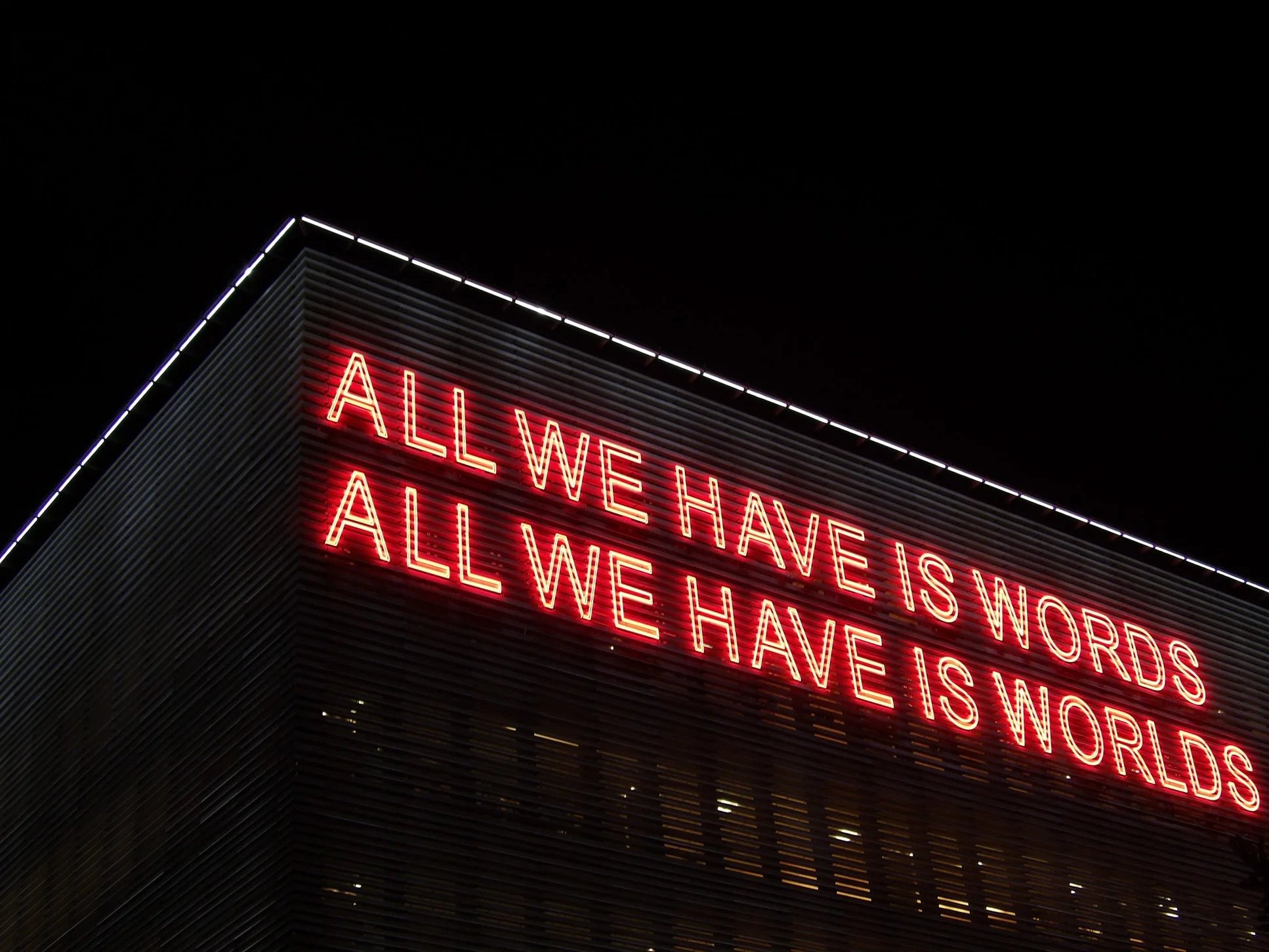Is the English language infiltrating every day Italian?
/Last week I had a chat with my Italian Father-in-law about something that really distresses him. The use of English within Italian every-day life. The instances of this are growing and creating upset among older generations but also amongst those who wish to preserve the Italian language as it is.
This is something that’s easy to miss when you are English yourself. However the moment Nonno (Grandpa/dad) mentions it I realise that I don’t notice how much English is blaring out of the TV next to us as we speak!
CREDIT: Unsplash
People will wish you a ‘Buon weekend’ and ask if your office is ‘Open space’? I think they mean ‘Open plan’. Which leads us on to another issue which is that when English is dropped into Italian language (or any other for that matter) it is often done so without thought or context. It’s considered cool, “a bit crazy” as one Italian brand has said when they used the ‘N’ word to describe the colour of a nail varnish which they believe resembled a black person’s skin!
Luckily some help is on hand with services such as Pocket Mothertongue, who help Italian speakers write English in a culturally and grammatically correct manner through a subscription membership.
So as you can see, language used without consideration can not only create real offense but for my Father-in-law there is also a nostalgia for his native language to be used in its native country. Imagine if someone in the UK told you they were going to the ‘parrucchiere’. Would you know that this meant the hairdresser?
Here I’ve asked Nonno a few questions about what Italian means to him and why it’s important to maintain our own languages.
Where do you see examples of English infiltrating Italian language?
Examples of infiltration of English into our language can be seen almost everywhere, in the media (TV and newspapers), in politics, in sports, in fashion, in the tribunals, in the small stores (my barber is no longer called ‘parrucchiere’ but ‘Roby's Hair Style’, the italian word ‘bar’ is replaced by ‘Drink Still and More’, as well as in department stores or supermarkets. Think of the word ‘sandwich’ for instance instead of the italian ‘panino’ and many other words we use daily.
Also in other industries and sectors, it’s also true for small artisans, english words are used for a product, a tool, a machine etc. Even knowing that the Italian population is constituted also by old people that more often than not must ask for the meaning of the english word to then forget about it or look at the strange words with indifference.
Is there a generational difference of opinion on whether English should be used or not?
Yes, the new generations tend to use English a lot. They study it and as soon as they can they use it here in Italy. Moreover, at the institutional level, the Italian schools start teaching English as a second language from year 1 at Primary School. They are age 6-7 years old at this point as Italian children start school later than in the UK.
The most fortunate and young adults travel regularly abroad, others study in high schools and European or American universities. As far as I am concerned, English should be known and spoken throughout the world in order to make relations between different civilizations easier but shouldn’t replace your native language.
CREDIT: Unsplash
Why is it so important to keep your language as pure as possible?
Perhaps I am too biased because I believe that our language, being derived from the Latin Greek, was born 3,000 years ago. Definitions and terminology we use daily date back to this classic period and are still used now in the animal, vegetable, health, pharmaceutical and the scientific world. Furthermore, some European countries such as Spain, France, Portugal, Romania and all of South America speak languages derived from Latin. (Spanish is the most widely spoken language in the world) . Because of this value I think our language should be preserved.
Is English still a very desirable language to learn in Italy ? Or have Mandarin or Spanish taken over?
I really think so, even if we clearly don't want to lose the idiom of our native land. It is about considering the English language as an emancipation, i.e. being used as it contributes to you being considered an educated global citizen. and it creates many opportunities for a person.
As for the Chinese, I have heard very few instances of Italians who study this language, but we have to consider that China is a great emerging power and that in Italy hundreds of thousands of Chinese live and trade, working in restaurants, bars and even the construction sector . Via Paolo Sarpi in Milan is a totally Chinese neighborhood full of shops, artisans and merchants. Quite often Spanish is studied out of convenience being very similar to Italian we find it easier to pick up.
CREDIT: Unsplash
Do you notice other languages creeping into your vocabulary?
How do you feel about it?
CREDIT: Canva
CREDIT: Canva.
Want to read more about Languages? Check out these posts below…
*Some links within this post may contain affiliate links. This means should you make a purchase, I may receive a small commission at no extra cost to you.































